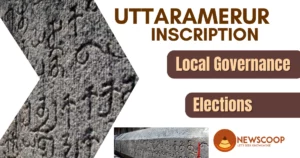For UPSC aspirants, this article provides a thorough understanding of the Central Ground Water Authority (CGWA). It covers its key objectives, including regulation of groundwater activities, promotion of sustainable usage, and monitoring of quality and levels. Additionally, it explores the agency’s functions, such as issuing No Objection Certificates and regulating water usage for industries.
What is the Central Ground Water Authority (CGWA)?
The Central Ground Water Authority (CGWA) is a crucial regulatory body in India that plays a pivotal role in the management and conservation of groundwater resources. Established under the provisions of the Environment (Protection) Act, 1986, the CGWA is entrusted with the task of formulating policies and guidelines for sustainable use of groundwater and preventing its over-exploitation.
Establishment of CGWA
The Central Ground Water Authority (CGWA) was established in 1997 under the provisions of the Environment (Protection) Act, of 1986. Its formation arose from the pressing need to address the escalating demands on India’s groundwater resources, driven by rapid population growth, urbanization, and industrialization.
Recognizing the critical importance of regulating and managing this invaluable natural resource, the CGWA was instituted to safeguard and sustainably manage groundwater reserves across the country.
Objectives of CGWA
The primary objectives of the Central Ground Water Authority are as follows:
- Regulation and control of groundwater activities
- Promotion of conservation and sustainable use of groundwater
- Monitoring and assessment of groundwater levels and quality
- Formulation of guidelines and policies for groundwater management
- Engagement in research and development for innovative groundwater techniques.
Powers of Central Ground Water Authority (CGWA)
The Central Ground Water Authority (CGWA) derives its authority from the Environment (Protection) Act, of 1986. Its powers encompass the following:
1. Implementation of Environmental Laws
The CGWA is empowered to exercise its authority under the Environment (Protection) Act, 1986, with a focus on matters outlined in sub-section (2) of Section 3. This enables the authority to issue necessary directives and take measures for enforcement.
2. Enforcement Provisions
The Authority can resort to the penal provisions contained in Sections 15 to 21 of the Act. This grants CGWA the capability to enforce compliance with its directives through legally stipulated measures.
3. Regulation of Groundwater Activities
The CGWA oversees the construction of wells, registration of groundwater abstraction structures, and the commercial sale of groundwater. This regulatory role ensures that groundwater resources are managed judiciously and sustainably.
Functions of CGWA
The Central Ground Water Authority (CGWA) carries out a range of functions aimed at achieving its core objectives:
1. Conservation and Artificial Recharge
The CGWA places a significant emphasis on the conservation and artificial recharge of groundwater resources. Techniques such as roof-top rainwater harvesting and stormwater recharge are employed to replenish groundwater levels.
2. Safeguarding Groundwater Quality
The Authority is committed to protecting groundwater quality from deterioration caused by the disposal of urban and industrial wastes. It implements measures to ensure that groundwater remains a viable and safe source of freshwater.
3. Management of Coastal Aquifers
The CGWA manages groundwater in coastal aquifers, addressing aspects not covered under coastal zone regulations. This ensures that the unique challenges associated with coastal areas are effectively addressed.
4. Approval and Clearance Processes
The Authority is responsible for granting clearance for the extraction of groundwater to industrial establishments. Additionally, it assesses and approves sites for the disposal of solid and liquid waste, contributing to sustainable waste management practices.
5. Awareness and Sensitization
The CGWA adopts a proactive approach in raising awareness and educating stakeholders at various levels about the imperative for responsible groundwater utilization and scientific management. This is accomplished through extensive outreach programs, media campaigns, and training initiatives.
6. Due Process and Regulatory Measures
In cases of non-compliance, the CGWA follows a structured approach. It issues notices to offenders, allowing them sufficient time to present their cases and implement corrective measures. The Authority also conducts personal hearings before imposing any regulatory actions.
Significance for UPSC Aspirants
For UPSC aspirants, understanding the role and functions of the Central Ground Water Authority is crucial for several reasons:
- Environment and Ecology: The conservation and sustainable management of natural resources, including groundwater, are important topics in the UPSC syllabus.
- Current Affairs: Given the increasing concerns about water scarcity and resource management, questions related to CGWA may feature in the current affairs section of the UPSC examination.
- Policy Implications: Knowledge about the policies and guidelines formulated by CGWA is essential for comprehending the broader policy framework in India.
- Environment and Ecology Optional: For candidates who have opted for the optional subject of Environment and Ecology, a detailed understanding of CGWA is imperative.
Conclusion
The Central Ground Water Authority plays a pivotal role in the sustainable management of groundwater resources in India. Understanding its functions, objectives, and significance is not only essential for UPSC aspirants but also for individuals concerned about environmental conservation and sustainable development.
As India grapples with the challenges of water scarcity, the role of regulatory bodies like CGWA becomes even more critical in ensuring the availability of this precious resource for future generations.
Thank You!





